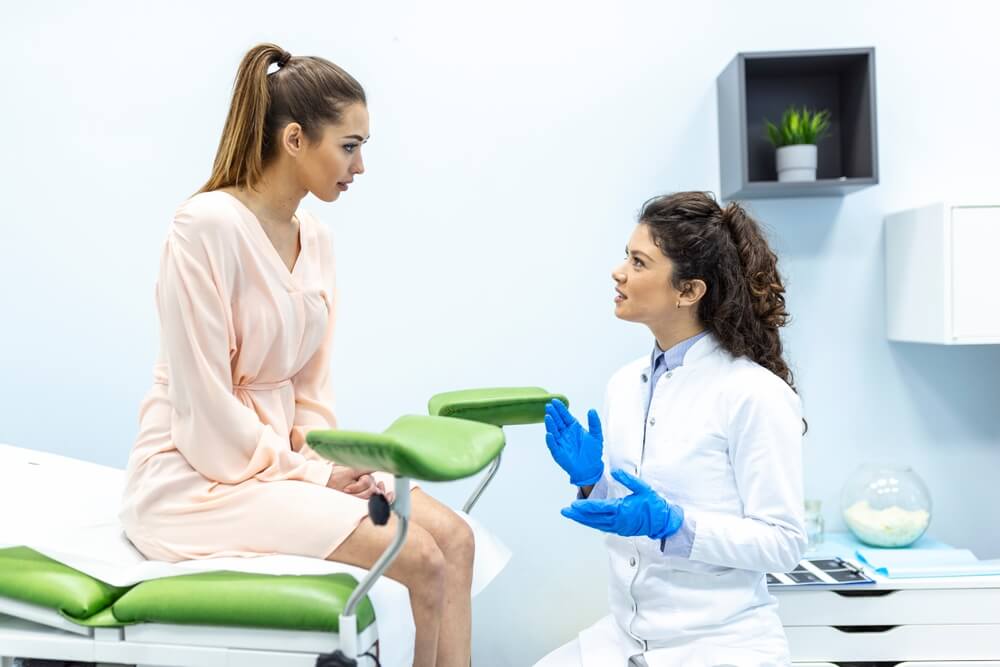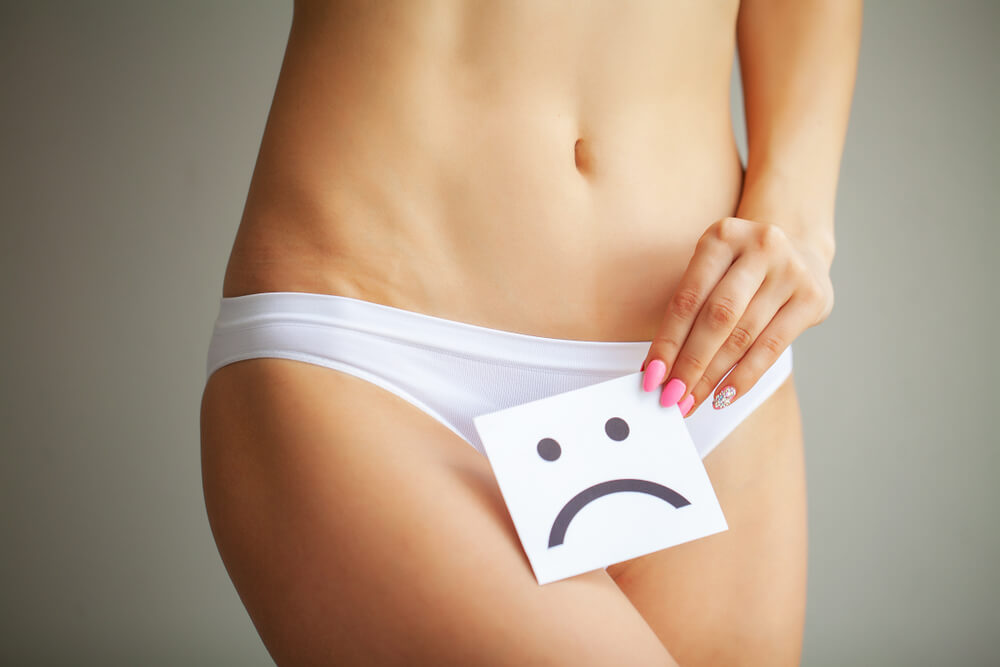What Are Vaginal Pimples?
Pimples are usually defined as tiny red growths on the skin’s surface. They are often a result of acne, an issue when the spores of the skin clog up with oil, bacteria, or other different kinds of substances. That said, these pimples may also appear on the pubic area, including the vaginal lip and the entirety of the organ’s external tissue. The condition may also be referred to as vaginal acne. While some women may find it a bit concerning or even frightening to have pimples on their vaginal area and vaginal lip, it’s nothing to be concerned about.
If you’re looking for a gynecologist in Boca Raton & Boynton Beach with any concern – whether vaginal acne or not, feel free to request an appointment now with our expert and compassionate team.
Still, before reaching out, please, consider reading a bit more about pimples in the vaginal area to learn more about them and know how to identify any issues that may be out of the ordinary.

What Causes Pimples in The Vaginal Area?
Generally, there could be several causes that may lead to pimples in the pubic area. Most of them are harmless, but a few of these causes will probably warrant a visit to your healthcare provider. That said, the leading causes of vaginal pimples are:
Contact Dermatitis
This can best describe a reaction to specific substances or materials that may touch the vulva. The substances that usually trigger contact dermatitis can be the following:
- Laundry detergent
- Lubricant or condoms
- Douche applicators
- Semen
- Scented bath products
- Sanitary pads or tampons
- Sweat
- Vaginal discharge
- Urine
Folliculitis
This condition develops when the follicles of the pubic hair become infected or inflamed. The condition may develop as a result of:
- Razor burns
- Wearing tight-fitting clothes
- Shaving
- Ingrown hairs
- Bathing in unclean weather in bathtubs, hot tubs, or even swimming pools
Hidradenitis Suppurative
Also, often referred to as acne inversa, this is a skin disease that affects the groin’s sweat glands. The condition may lead to the formation of pus-filled sores that will often come back even after treatment and will leave scar tissue.
Molluscum Contagiosum
This is a viral infection that leads to the development of growth throughout the body. The masses may sometimes appear in the genital area. They aren’t exactly “classic” vaginal pimples, but they will take a few months to clear up properly.
STIs or Sexually Transmitted Diseases
STIs, among other symptoms, may also cause acne formation in the vaginal area or produce symptoms that resemble acne. These infections may include the following:
- Genital warts are an infection caused by HPV (human papillomavirus). These growths don’t actually look like pimples but resemble the form of cauliflower.
- Genital herpes, another infection, is caused by the virus called herpes simplex. Symptoms are sometimes apparent, and they sometimes subside, but the virus stays with you throughout your life.
Skin Tags
These are small skin flaps that form in those areas of the groin where the skin manages to rub against itself. These tags are harmless but often won’t go away on their own.
Bartholin Cysts
There are also some uncommon causes of vaginal acne, such as these cysts. Bartholin cysts occur when the glands on both sides of the vagina become blocked, leading to inflammation and the collection of pus.
Pimples on the Vaginal Lip: Symptoms
The most obvious symptoms of vaginal acne include a small red bump. The bumps may be:
- Tender to the touch
- Tiny and raised (papules)
- Have a white tip because it’s filled up with pus (pustule)
Diagnosing Pimples in The Vaginal Area
While most cases of vaginal acne probably won’t need to be assessed by a professional, you may schedule an appointment with your provider if you experience the following:
- These genital pimples appear regularly.
- They become large and painful.
- You have concerns that they actually aren’t pimples,
Fortunately, your healthcare provider can easily diagnose vaginal acne after just a short examination. If they are concerned that the pimples are more than just simple acne, they will assess the area more in detail and may also ask you a few questions.
This may include:
- Talking about your hygiene habits.
- Asking a few questions about your sexual history.
- Check for any changes in your daily routines that may have led to contact dermatitis.
- Running a few tests to rule out the presence of sexually transmitted diseases.
Treating and Managing Vaginal Acne
In most cases, those pimples resulting from simple acne or ingrown hairs will resolve independently. However, other causes may need therapy, including:
- Taking acne medication that reduces the amount of oil the skin produces naturally or reduces inflammation.
- Using imiquimod cream, which helps to calm down the immunes system’s natural response to molluscum contagiosum and genital warts,
- Taking antihistamines that treat allergies and inflammation.
- Taking antiviral medications for different viruses that cause sexually transmitted diseases.
Can You Prevent Pimples On The Vaginal Lip?
Fortunately, there are several steps you can take to prevent specific genital pimple causes. These include:
- Washing your genital area every day, using mild soap
- Avoid wearing tight-fitting underwear or pants.
- Wearing cotton underwear or other breathable materials.
- Instead of shaving, trim your pubic hair.
- Change out of sweaty clothes each time you sweat profusely.
- Change your tampons and pads regularly when on your period.
Still, don’t forget that these pimples will clear up on their own just within a few days. On the other hand, if you have to take medications to eliminate them, they may linger for a few weeks but will ultimately clear up.

If The Growths Aren’t Acne
There are also a handful of self-care methods that may help prevent flair-up symptoms or relieve discomfort.
In The Case of STIs
- Practicing safe sex: You should always use a condom when having sexual relations.
- Mutual monogamy: You can decrease the risk of flair-ups if you limit intimacy to only one person. That person should also be only intimate with you.
Self-Face to Address Short-Term Symptoms
- Using cool compresses for swelling: Soak a hand towel in cold water, which you should wring out before placing it on your skin while applying gentle pressure.
- Using warm compresses for pain and itching: The process is the same, just like with cold compresses, only with warm water.
Should You Pop Vaginal Pimples?
Typically, you shouldn’t pop these pimples because the skin around the area is extremely sensitive, and popping them may cause pain. Also, when these pimples burst, the bacteria may end up in other vaginal areas, which may lead to even more pimples and irritation.
Lastly, these pimples typically go away without any required treatment within a few days. If they have been persistent for weeks, you should contact your healthcare provider.
Don’t Be Alarmed
The occurrence of pimples near the vagina can have various underlying causes and often resolves naturally. It’s essential not to feel ashamed or hesitant to reach out to your healthcare provider if you have concerns. Seeking professional advice can lead to faster resolution through prescribed treatments for genital pimples. Moreover, healthcare providers can accurately diagnose any growths that might differ from typical pimples to ensure proper management. Your well-being and peace of mind are our priority, so don’t hesitate to seek assistance when needed.
That said, feel free to contact us if you have any questions or concerns.


